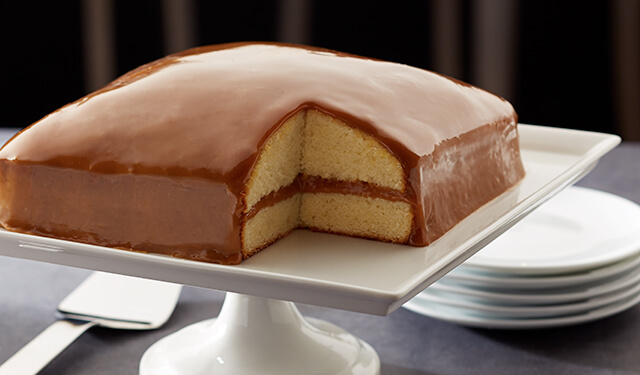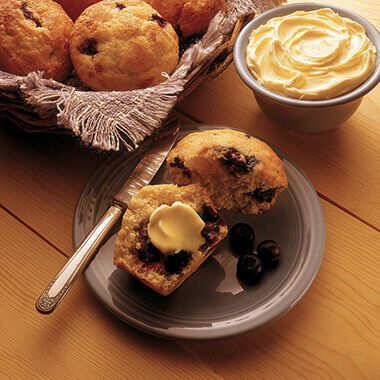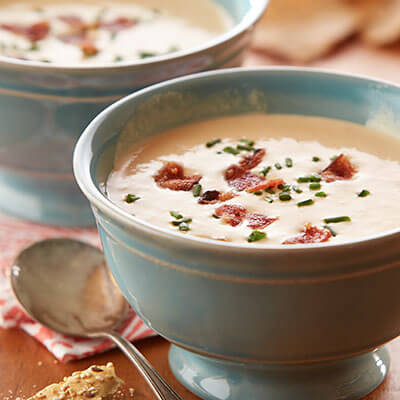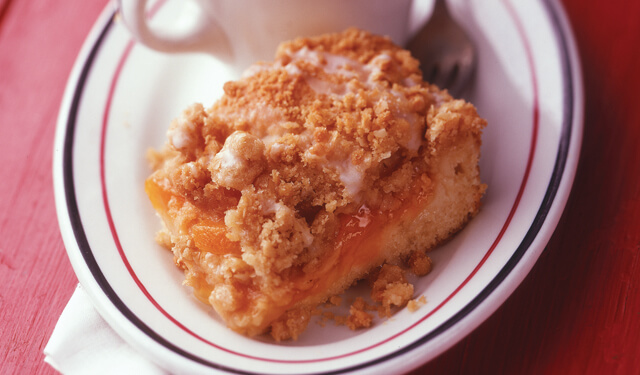
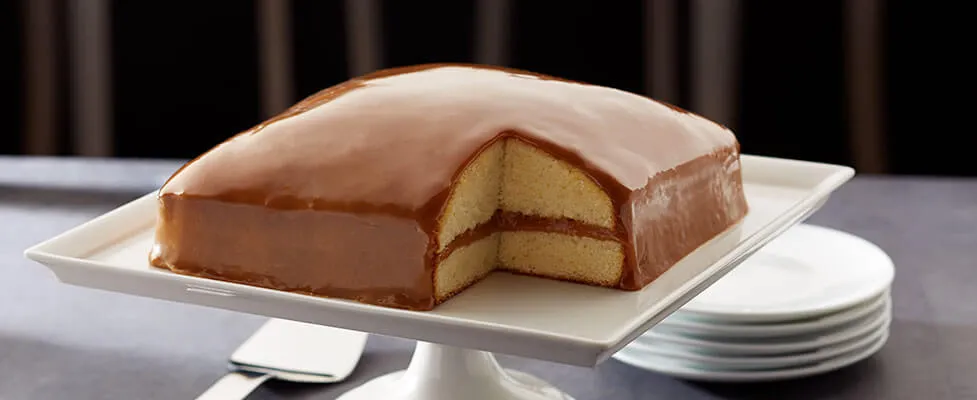
Caramel Cake
Caramel and cake. The subtle sweetness of the pound cake combined with the browned butter and toasty sugar flavor in the caramel sauce icing creates a dessert well worth the time to make it.
SEE THE RECIPE
 by
Land O'Lakes Test Kitchen
by
Land O'Lakes Test Kitchen
 by
Land O'Lakes Test Kitchen
by
Land O'Lakes Test Kitchen
Caramel and cake. The subtle sweetness of the pound cake combined with the browned butter and toasty sugar flavor in the caramel sauce icing creates a dessert well worth the time to make it.
Our Caramel Cake starts with a basic sour cream pound cake, baked in an 8-inch square pan. The sour cream creates a tender crumb and moist cake, but you won’t actually taste the sour cream once it’s baked. Once the cake has baked and cooled, cut it in half horizontally, creating 2 layers.

The “frosting” for this cake is essentially a thick homemade caramel sauce which takes some time to make – just as if you were making caramel candies. Start by combining the butter and sugar in a 4-quart saucepan and cook over medium-high heat.

The sugar won’t dissolve in this step; it will stay thick. Cook, stirring constantly, until the mixture is light golden brown. The butter will separate from the sugar when it is nicely golden brown. This is supposed to happen and will combine again as it cooks with the cream. While the sugar and butter are cooking, warm the whipping cream in the microwave.

Remove the butter mixture from the heat and slowly stir in the warm whipping cream. The mixture will bubble and splatter a bit. The sugar will also harden up again – you haven’t done anything wrong! It will dissolve into a nice thick sauce. When we were developing this recipe, we tried four different ways of making the sauce. This was the most reliable, if a little unconventional.

Once you’ve added all the whipping cream, return the saucepan to the heat and continue cooking until the temperature reaches 230°F on a candy thermometer. This temperature is known as thread stage, meaning it’s the right consistency to ensure minimal spreading when you frost the cake, but not so hard or sticky that it’s difficult to eat.

Once you get to 230°F, remove the pan from the heat and stir in the vanilla (this will splatter a little, too). Beat the caramel sauce with a hand mixer for 3-5 minutes until its thick, glossy, and has a spreadable consistency. You can test it by dropping a dollop on a plate – it should only spread a little bit.
Place one cake layer, cut side up, onto a cake plate.

Pour a little over 1 cup of icing onto the cake and spread slightly, almost out the edges. It should spread mostly on its own, with only a little help from you.


Top with the second layer and slowly pour the rest of the icing on top, allowing it to spread over the top of the cake and drip down the sides.


I cleaned up the sides with a rubber spatula and a damp paper towel around the edges. You might have a little caramel sauce left over – it goes wonderfully with apples or a spoon.

Tag a photo of your Caramel Cake on Instagram using @landolakesktchn so we can see your baking creation. Happy Baking!
Share Your Thoughts
Did you find this article helpful? Has it inspired you? What else would you like to know?


